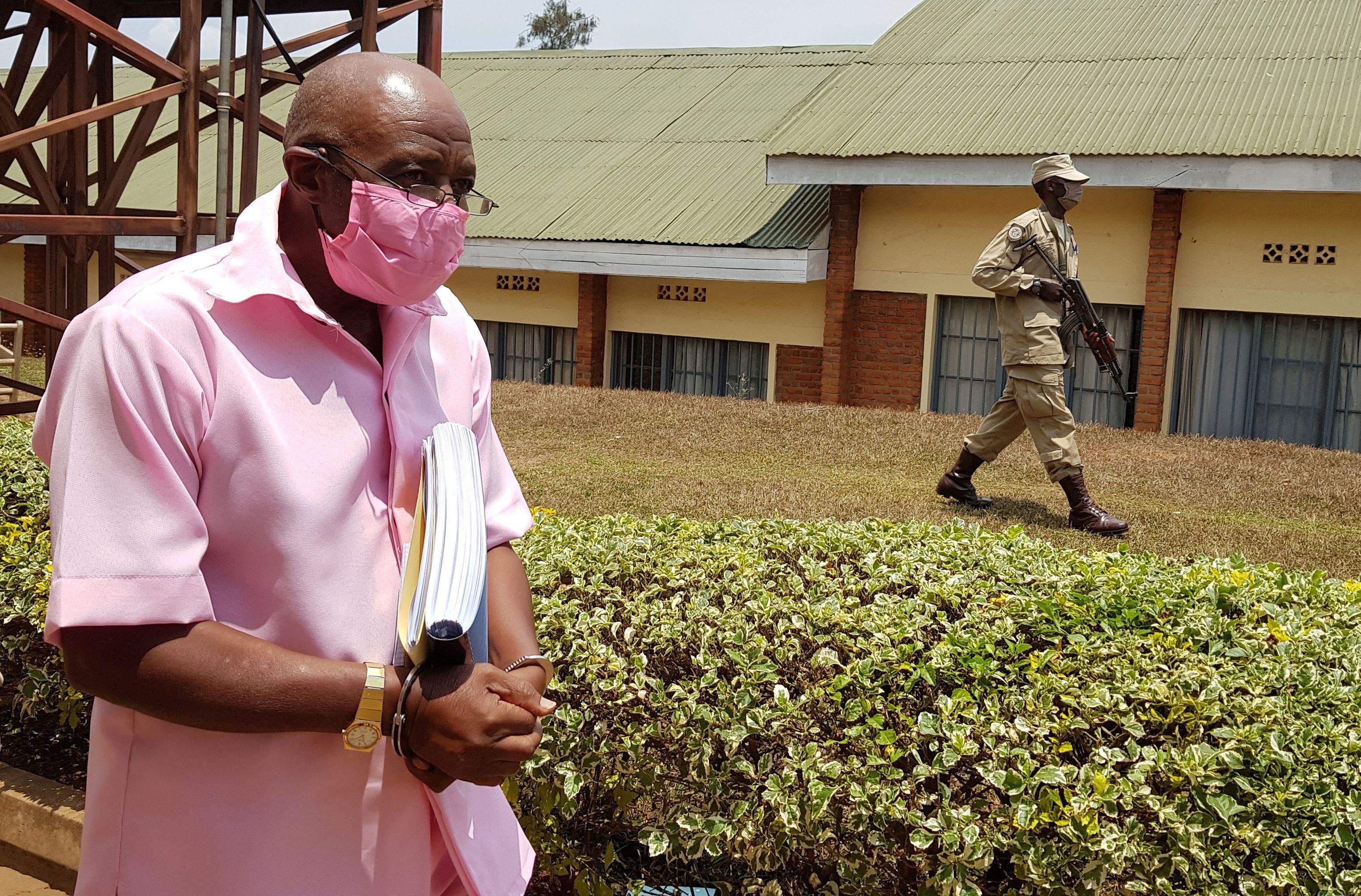Hotel Rwanda hero given 25-year sentence: It's been more than a year since Paul Rusesabagina — the former hotel manager credited with saving more than 1,200 Tutsis and Hutus during the 1994 Rwandan genocide as portrayed in the film Hotel Rwanda — was misled into boarding a plane that eventually flew him to Kigali, where he was arrested. Now, Rusesabagina, a Belgian citizen and US permanent resident who received a Presidential Medal of Freedom from George W. Bush in 2006, has been sentenced to 25 years in prison on terrorism charges. Rwandan authorities say Rusesabagina's punishment is for his support for the Rwandan Movement for Democratic Change, a group accused of coordinating a string of attacks in southern Rwanda in 2018. But supporters of Rusesabagina say the trial is simply retaliation for his public criticism of President Paul Kagame, who has ruled the country since the civil war ended in the mid-1990s and has been dubbed a "benevolent dictator." Western governments have criticized Kagame for targeting Rusesabagina, and President Biden could bring up his case directly with the Rwandan president when the two leaders attend a G20 summit in Rome next month.
ISIS-K strikes in Afghanistan again: At least seven people were killed, and scores were injured, in attacks on Kabul and Jalalabad in eastern Afghanistan over the weekend, after ISIS-K planted explosive devices aimed at targeting their Taliban rivals. The Taliban confirmed that at least 35 members were killed or injured. This latest attack comes a month after ISIS-K, an Islamic State offshoot that expanded into Central Asia in 2015, killed 13 US service members and more than 100 Afghans in an attack on Kabul's airport during the chaotic US withdrawal from Afghanistan. ISIS-K and the Taliban, both hardline Sunni Islamist groups, are sworn enemies. Indeed, infighting within the Taliban, ISIS-K violence, and isolation from the global financial system will make governing Afghanistan much harder for the Taliban than the seizing of cities before they were in power.
Why did Canada hold an election? Preliminary results from Canada's snap election held on Monday show that PM Justin Trudeau will keep his job and enjoy a third term in office but likely not win a parliamentary majority, the reason he called the early vote in the first place. What's more, his ruling Liberal Party is likely to end up with almost the same number of seats (156) as it does right now — in part because the opposition Conservative Party again won the popular vote but nowhere near enough seats to oust the PM. Trudeau emerges from the election — which most Canadians didn't want in the first place — with his political future shaken, as the gamble could have cost Trudeau the premiership. Still, he has enough votes to continue leading a minority government, as he has since 2019.
The kids are alright (for vaccines), says Pfizer: The drug maker Pfizer said Monday that its coronavirus vaccine had safely produced a strong antibody response in kids aged 5 to 11. With children now accounting for one in five new cases of COVID-19 in the US, this is welcome news for people who want to vaccinate their kids, and for elementary schools who want to require that they do so. But that doesn't apply to all parents or schools: More than 40 percent of parents polled recently said they would keep their kids at home rather than send them to schools where a COVID vaccine is required. Pfizer and partner BioNTech plan to ask the FDA to authorize the shot for 5-11 year olds by the end of this month. If that approval is granted, buckle up for the next wave of "culture wars" over the vaccine.
The UNGA podium: A number of world leaders will take the podium at the UN General Assembly Tuesday. An increasingly beleaguered Joe Biden will try to convince the world that, really, "America is Back" (cue eyeroll in French), while Brazilian President Jair Bolsonaro will first try to convince the UN to let his unvaccinated self into the building, before taking the podium. Two others to keep an eye on are Turkish President Recep Erdogan who is aiming to be a power broker in post-US Afghanistan as well as Libya. And Mexico's Andrés Manuel López Obrador may have words of caution about attempts to pressure his fellow left-wingers in Latin America.
More For You
Chris, an Army veteran, started his Walmart journey over 25 years ago as an hourly associate. Today, he manages a Distribution Center and serves as a mentor, helping others navigate their own paths to success. At Walmart, associates have the opportunity to take advantage of the pathways, perks, and pay that come with the job — with or without a college degree. In fact, more than 75% of Walmart management started as hourly associates. Learn more about how over 130,000 associates were promoted into roles of greater responsibility and higher pay in FY25.
Most Popular
(very) strongly worded stuff. #PUPPETREGIME
Indian Prime Minister Narendra Modi and Canadian Prime Minister Mark Carney struck a series of deals during a meeting in New Delhi on Monday, including a 10-year nuclear energy deal under which Canada will provide India with uranium.
A satellite image shows black smoke rising and heavy damage at Iranian Supreme Leader Ayatollah Ali Khamenei's compound, following strikes by the United States and Israel in Tehran, Iran, on February 28, 2026.
Supreme Leader Ali Khamenei is dead, the conflict is spreading, and US President Donald Trump still isn’t clear on who he wants to run Iran.
